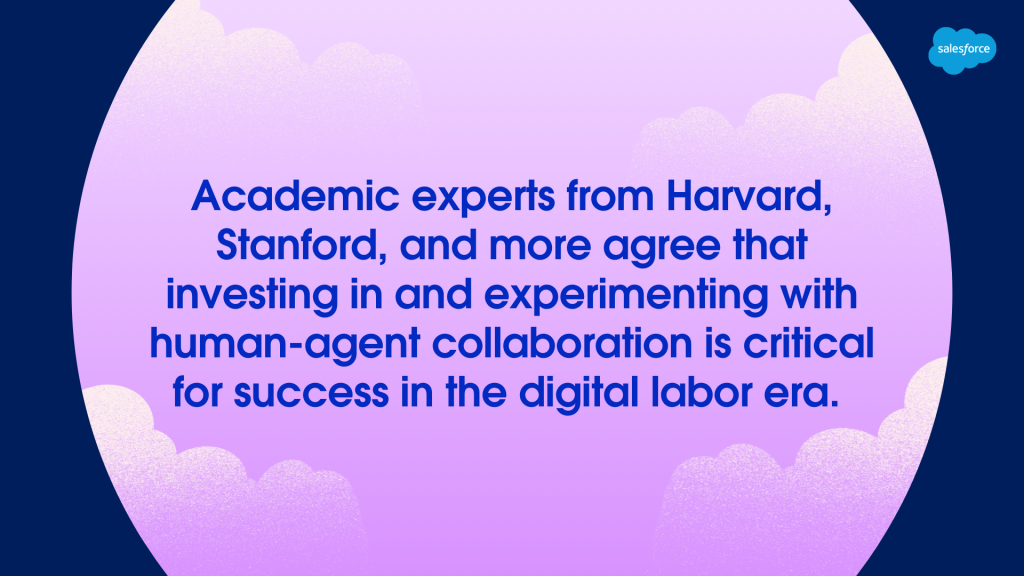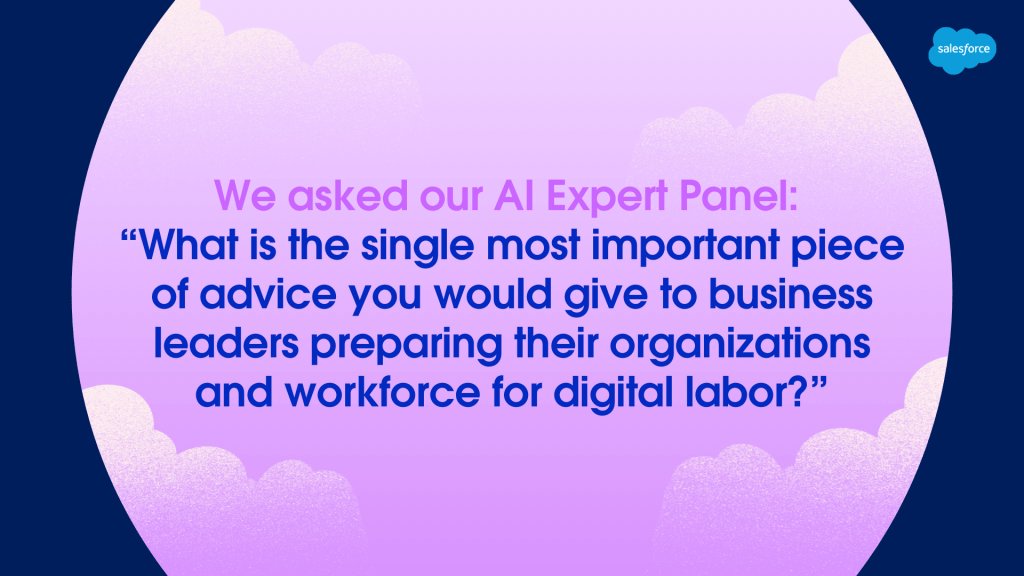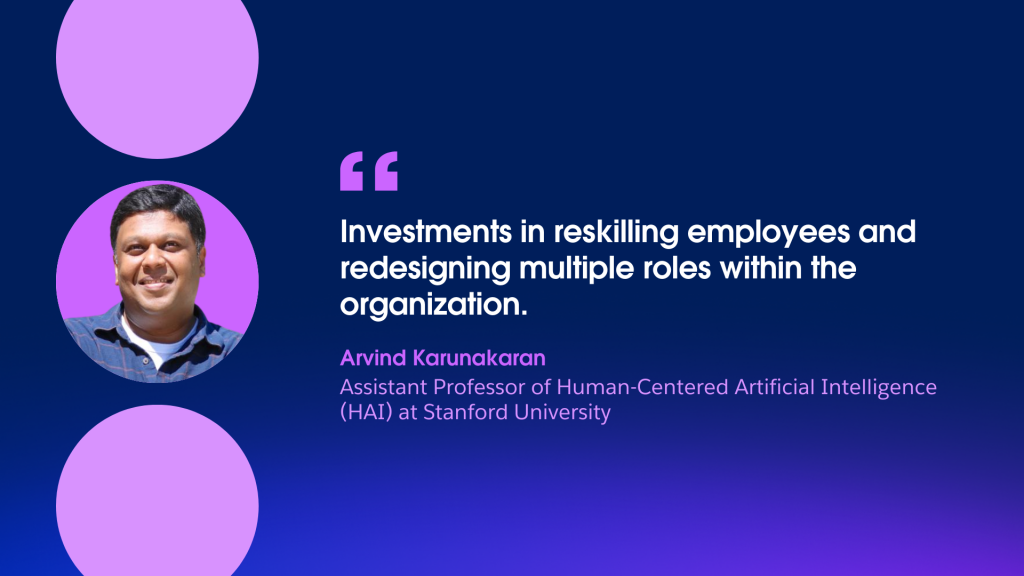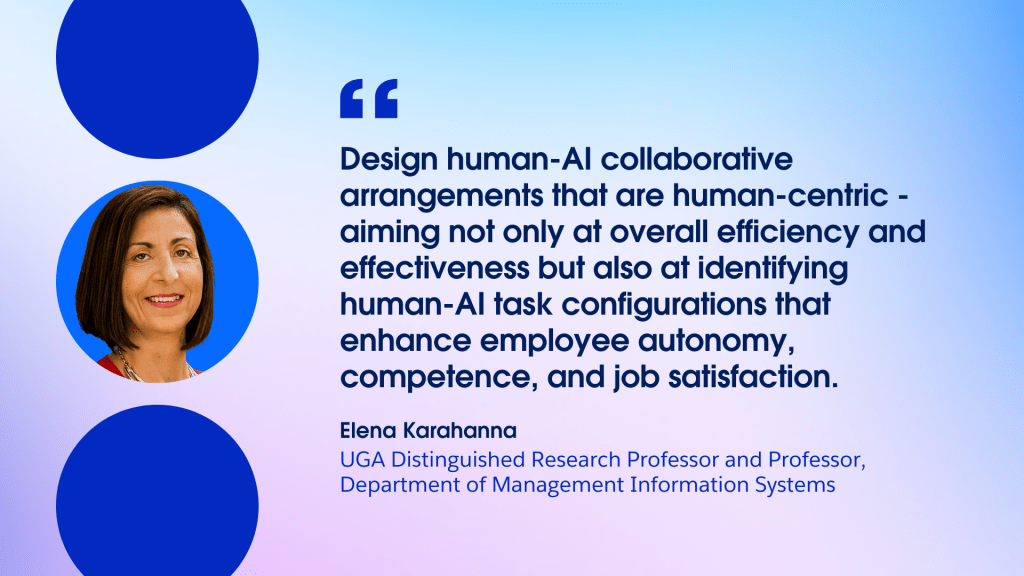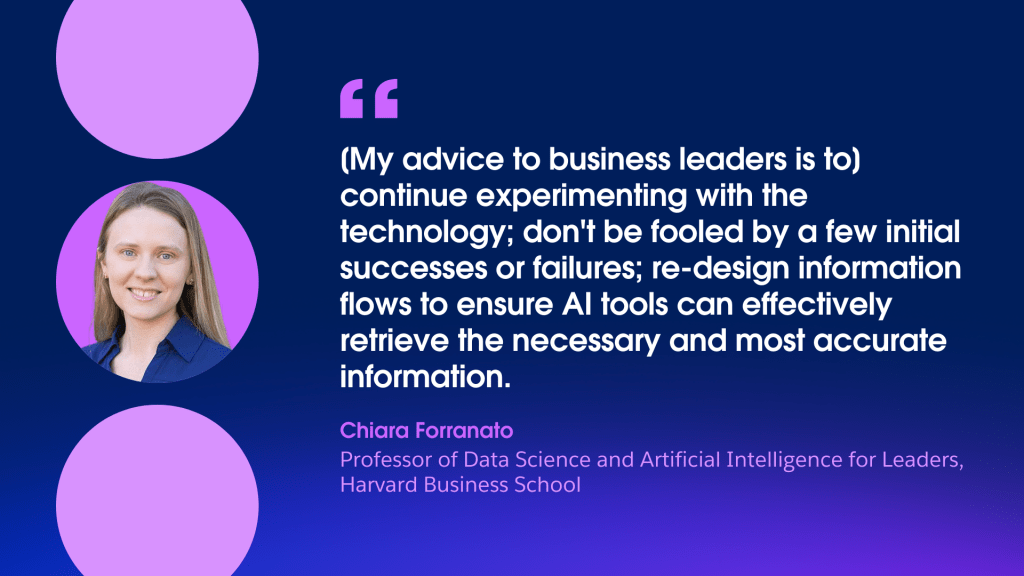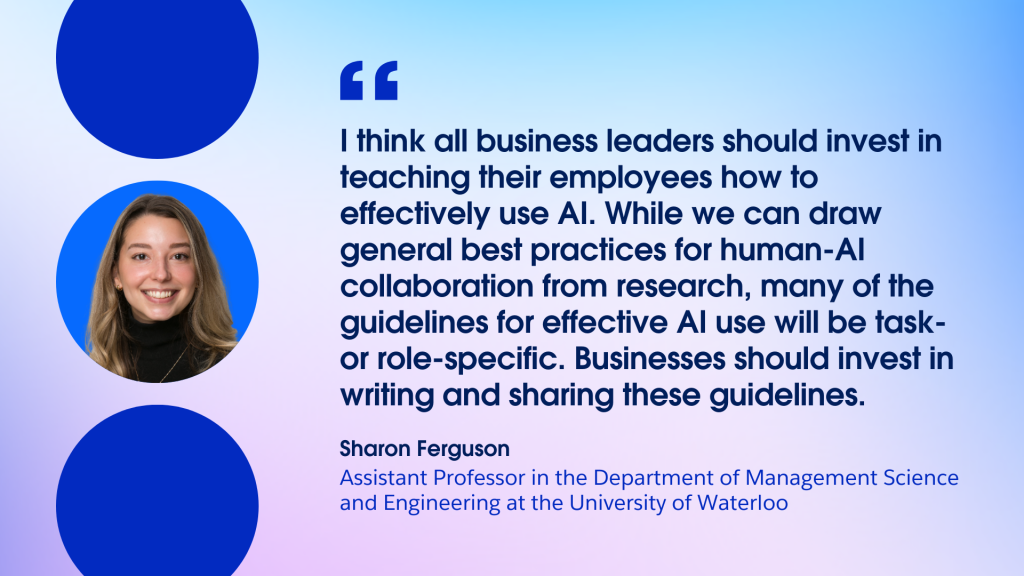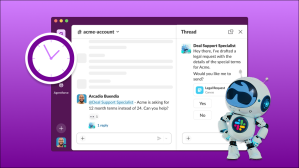Agentforce usage data provides a first look at how businesses are deploying AI agents and unlocking value
Salesforce’s new Agentic Enterprise Index leverages Agentforce usage data to provide a first look at the trends shaping the Agentic Enterprise — and how companies are implementing AI agents to drive customer success and reinvent their businesses.
The Agentic Enterprise represents a fundamental shift in the way the world works — leveraging AI agents to not just automate existing workflows but transform entire businesses. By augmenting every employee with a limitless digital workforce, companies can increase productivity and scale, improve employee experience, bring down costs, and deliver value for customers.
Salesforce’s Agentic Enterprise Index finds that this transformation is already underway, with AI agents delivering impact for businesses across sales, service, internal operations, and more. Agent creation among first-mover companies surged 119% between January and June, and the average number of customer service conversations led by an agent grew 22 times in the first half of 2025. Consumer-facing industries, like financial services, travel and hospitality, and retail, are leading on AI agent implementation, with sales and service proving to be the dominant use cases.
AI agents are already beginning to act as incredible force multipliers for businesses and consumers.
Joe Inzerillo, Chief Digital Officer.
“AI agents are already beginning to act as incredible force multipliers for businesses and consumers,” said Joe Inzerillo, Chief Digital Officer. “The Index shows that agents are fundamentally changing the way businesses work, and the more companies use and scale these agents, the greater efficiency and value they’re able to unlock.”
The report also points to growing adoption among workers. Employee interactions with AI agents grew at an average monthly rate of 65% in the first half of 2025. And employees are engaging in more sustained conversations with AI agents; indeed, agent actions stemming from employee conversations grew at an average rate of 76% per month over the first half of 2025.
Consumers are also embracing AI agents, with 94% choosing to interact with AI agents when given the option. But this doesn’t mean humans are out of the picture. Businesses are balancing human and agent capabilities, with AI agents handling initial contact and common questions and human representatives focusing on more complex issues. In fact, escalations to humans increased from 22% in Q1 2025 to 32% in Q2 2025 as agents got better at pinpointing when a human was needed and routing customers to the right experts.
Key data from the report:
Agent adoption is rapidly accelerating, with sales and service emerging as primary use cases.
- In the first half of 2025, the number of agents created and deployed within participating organizations grew by 119%.
- The number of actions completed by agents across use cases grew at an average rate of 80% month-over-month
- The top three areas in which AI agents are being used are:
- Customer service
- Internal/business automation
- Sales
- Across sales and service, agents are not only automating tasks but taking action.
- In sales, drafting and sending emails was the most-common agent action, followed by creating to-dos and sending meeting requests.
- In service, businesses saw the average daily number of agent-led customer service conversations grow by an average monthly rate of 70% between January and June.
- The most common AI agent actions are:
- Querying and identifying records
- Drafting and scheduling outreach and follow-up emails
- Answering questions with knowledge
- Summarizing records
- Creating cases
Consumer-facing industries, particularly retail, travel and hospitality, and financial services, are implementing AI agents most quickly.
- Travel and hospitality saw AI and agent actions grow at a monthly average rate of 133% in the first half of 2025.
- Travel and hospitality also has the highest percentage of active business users compared with all other industries, indicating this industry’s ability to successfully train employees and drive adoption.
“We built, developed, and launched our first agent in just 12 days – but the real work was just starting. We created and tested new actions following launch, and the team at Engine continues to tailor our agents, building on what they’ve learned to roll out even more capabilities. This has been critical in achieving our reduction in average handle time by 15%.” – Demetri Salvaggio, Senior Director, Business Development & Client Operations, Engine
- Retail saw AI and agent actions grow at a monthly average rate of 128% in the first half of 2025.
- According to a recent survey of over 2,000 global consumers, those who regularly interact with customer service AI agents are 200% more likely to say their overall experience with the retail industry has improved versus those who don’t.
“We’re excited to be early adopters of agents, because this is the future of hyper-personalized shopping,” said Calvin Anderson, SVP of Digital Commerce Operations and User Experience at SharkNinja. “AI agents will allow for an always-on digital touchpoint that assists customers with everything from the buying process to product questions and post-purchase support. This not only enhances brand loyalty through tailored recommendations but also allows our team members to focus on more complex, meaningful interactions. Ultimately, it’s about combining the power of agentic AI with the expertise of our team to deliver a truly world-class retail experience.”
- Financial services saw AI and agent actions grow at a monthly average rate of 105% in the first half of 2025.
- The accompanying consumer survey revealed that, compared with non-agent users, consumers who use customer service AI agents are 222% more likely to say their overall experience with the financial services industry has improved.
- 38% of consumers who regularly interact with AI agents prefer budgeting their money with an automated/digital system, like an AI agent.
“Agentforce has been a game-changer, allowing us to efficiently scale and enhance client service during our busiest periods. With Agentforce now resolving up to 60% of incoming requests, we can confidently address routine inquiries like tax return statuses, which frees our team to focus on more intricate tasks while still providing swift, secure, and personalized support.” – Ryan Teeples, CTO, 1-800Accountant
Employees are not only turning to AI agents more often but also having richer, more ongoing conversations that prompt the agents to take action.
- Employee interactions with AI agents grew at an average monthly rate of 65% in the first half of 2025.
- Employee-agent engagement is deepening — the average volume of back-and-forth employee-agent conversations grew 35% in the past quarter.
- The volume of agent actions triggered by an employee engagement grew at an average month-over-month rate of 76% across the first half of 2025.
- Beyond agents, global worker adoption of AI has surged 233% since fall 2024, according to Salesforce’s latest Workforce Index.
- Workers who use AI daily are 64% more likely to report very good productivity, 58% more likely to report very good focus, and 81% more likely to report very good job satisfaction, compared with colleagues who don’t use AI.
According to Nathalie Scardino, President and Chief People Officer at Salesforce, “The data shows us that employees are not only adopting AI agents — they’re actually having deeper, more meaningful interactions with the technology. As employees learn how to collaborate with agents, they’re unlocking bold, purpose-driven work and charting new career paths.”
Agents are improving the customer experience as consumers opt into agent-powered interactions to get their issues resolved.
- In the first half of 2025, on average, 94% of consumers opted into agent interactions, and customer service conversations with AI agents grew by a six-month compound annual growth rate (CAGR) of 2,199% for the average business.
- The accompanying consumer survey found that nearly 60% of consumers who regularly engage with customer service AI agents say they have become more helpful in the past year.
- The longest time U.S. consumers spend resolving a single customer service issue has decreased by three hours since October 2024.
- A successful case resolution doesn’t necessarily mean an agent is doing 100% of the work. In fact, escalations to human agents increased from 22% in Q1 2025 to 32% in Q2 2025.
Methodology: Powered by Agentforce and other Salesforce products, Salesforce analyzed and aggregated usage data to uncover the true story of agents in the workforce. Looking at trends over the past six months, the Salesforce Agentic Enterprise Index analyzes the activity and engagement of real businesses leveraging the power of AI agents to drive productivity. To qualify for inclusion in the dataset, businesses needed to have activated agents in production every month across the analysis period. Several factors are applied to extrapolate macroeconomic figures for the broader market, and these results aren’t indicative of Salesforce performance.
Additional data was sourced from Salesforce’s global proprietary research studies totaling more than 2,000 responses. Survey audiences include AI experts, HR chiefs, service leaders, and consumers. These responses aren’t indicative nor representative of Salesforce’s customer behavior and opinions.



